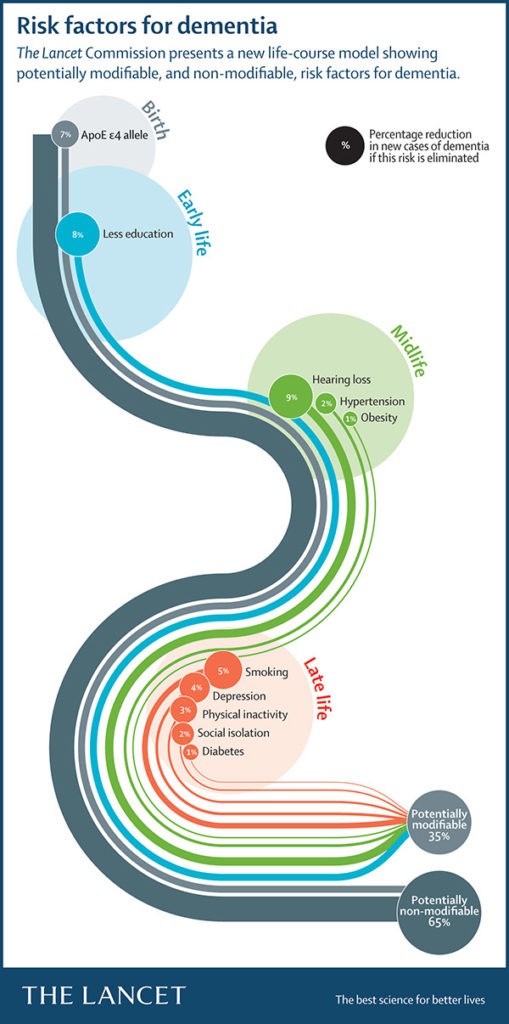Posts Tagged ‘dementia care’
Update: 35% of worldwide dementia cases could be prevented by modifying these 9 modifiable risk factors
Time for SharpBrains’ July e‑newsletter, featuring fascinating scientific findings, emerging brain health practices and insights…and some fun teasers. New research Let’s start with the key take-aways from a new and very insightful evidence review which found nine modifiable risk factors for dementia — accounting for 35% of all cases: — Education by age 15 (during early life) —…
Read MoreReport: 35% of worldwide dementia cases could be prevented by modifying these 9 modifiable risk factors
The Lancet Commission: One Third of Dementia May Be Preventable (Lancet report release): “Today’s findings are extremely hopeful,” said Maria Carrillo, PhD, chief science officer at the Alzheimer’s Association. “At an individual level, many people have the potential to reduce their risk of cognitive decline, and perhaps dementia, through simple, healthful behavior changes. At a…
Read MoreTime is over for “one size fits all” dementia treatments. Next: How to best integrate non-pharmacologic and pharmacologic approaches
. Time to ‘just say no’ to behavior-calming drugs for Alzheimer patients? Experts say yes (Medical Xpress): “Doctors write millions of prescriptions a year for drugs to calm the behavior of people with Alzheimer’s disease and other types of dementia. But non-drug approaches actually work better, and carry far fewer risks, experts conclude in a…
Read MoreEllen Somers: Staying sharp by continually learning and teaching about brain health
What is your name, job title and organization, and what excites you the most about working there? As Coordinator of Cognitive Health Services at St. Camillus Centers, I am always looking for new ways to develop our programs and services as the field of brain health evolves. Please tell us about your interest in applied brain…
Read MoreDementia costs more than heart disease, and cancer. And it will balloon.
Dementia Care Cost Is Projected to Double by 2040 (The New York Times): “The most rigorous study to date of how much it costs to care for Americans with dementia found that the financial burden is at least as high as that of heart disease or cancer, and is probably higher. And both the costs and the…
Read MoreLet’s Define Brain Fitness and Physical Fitness
Beverly Sanborn, Vice President of Program Development at Belmont Senior Living and scheduled 2011 SharpBrains Summit Speaker, could not finally speak at the Summit (she was very well replaced by colleague Jeff DeBevec), but fortunately we can share her thoughtful answers to the following four critical questions. 1. How would you define “brain fitness” vs. “physical fitness”?…
Read More




